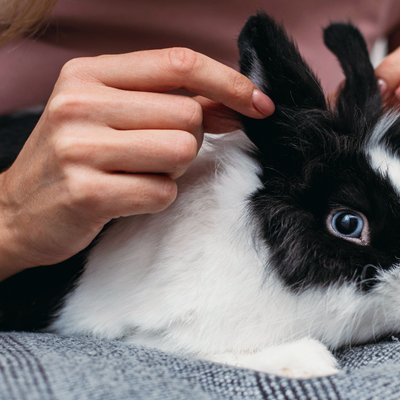How To Say "Sorry" In English
Learn the different ways to apologize in English with our comprehensive guide. Discover the right words and phrases to express regret and make things right.
Dec. 12, 2023

Improve your English language skills while learning about the diverse world of animals. Our comprehensive guide explores animal names, habitats, behaviors, and characteristics in English language.
Starting to learn a language is like walking into a lively zoo of words, where each word is a different way to express things. In this exploration, we'll look at the words related to animals in the English language, uncovering a rich tapestry woven with names, where they live, what they're like, and common phrases.
The English language, resembling a vast zoological garden, classifies animals into distinct types, each contributing to the rich lexicon. Let's embark on a detailed safari through the linguistic zoo:
A. Mammals:
These warm-blooded vertebrates encompass creatures from the gentle giants like elephants to the playful dolphins, each adding a layer of diversity to the linguistic landscape.
Examples:
1. Elephant: The majestic elephant, with its impressive tusks, symbolizes strength and grace.
2. Dolphin: Intelligent marine mammals known for their playful interactions with humans.
B. Birds:
The skies are home to a multitude of feathered wonders, from the soaring eagles to the delicate hummingbirds, each contributing to the avian symphony.
Examples:
1. Eagle: Majestic birds of prey known for their keen eyesight and powerful wings.
2. Hummingbird: Delicate and vibrant, these tiny birds captivate with their rapid wing beats.
C. Reptiles:
The cold-blooded reptilian world, from the slow-paced turtles to the sleek and stealthy snakes, offers a diverse range of creatures with distinct characteristics.
Examples:
1. Turtle: Characterized by protective shells, turtles navigate both land and water.
2. Snake: Legless wonders, ranging from harmless to venomous, showcase the diversity of reptilian life.
D. Amphibians:
These dual-life beings, from the leaping frogs to the colorful salamanders, provide a unique dimension to the animal kingdom.

Examples:
1. Frog: Small amphibians known for their distinctive croaking sounds.
2. Salamander: Brightly colored, these creatures symbolize the diversity of amphibian species.
E. Fish:
The aquatic realm teems with an array of fish species, each with its own adaptations and characteristics, enriching the lexicon of marine life.
Examples:
1. *Salmon:* Iconic migratory fish known for their upstream journeys to spawn.
2. *Clownfish:* Colorful reef dwellers famous for their symbiotic relationship with sea anemones.
F. Insects:
The smallest but most numerous group, insects, from graceful butterflies to industrious ants, play essential roles in ecosystems.
Examples:
1. Butterfly: Graceful insects symbolizing transformation and beauty.
2. Ant: Social insects known for intricate colonies and teamwork.
1. Animal Names:
English encompasses a diverse array of animal names, from domestic companions to exotic creatures.
Example: A pride of lions.
2. Habitat Names:
Specific terms for habitats enhance language proficiency.
Example: A school of fish in the ocean.
3. Collective Nouns:
Poetic collective nouns add richness to descriptions.
Example: A parliament of owls.
1. Physical Characteristics:
Detailed descriptions capture the essence of animals.
Example: The agile cheetah with its spotted coat.
2. Behavioral Characteristics:
Vivid expressions convey animal behavior.
Example: The curious squirrel scurried up the tree.
3. Sizes and Shapes:
Descriptive terms articulate size and shape differences.
Example: A tiny hummingbird flitted among the flowers.

A. Animal Metaphors
1. Being a “Chicken”:
Implying someone easily frightened or lacking courage.
Example: Don't be a chicken; take on new challenges!
2. Being “Sly as a Fox”:
Describing someone as clever and cunning like a fox.
Example: She's as sly as a fox; nothing escapes her notice.
3. Being “Busy as a Bee”:
Characterizing someone as industrious and tirelessly working.
Example: Despite the workload, she remains as busy as a bee.
B. Animal Proverbs
1. “Birds of a Feather Flock Together”:
Emphasizing the association of individuals with similar interests.
Example: In a book club, birds of a feather flock together.
2. “A Bird in the Hand is Worth Two in the Bush”:
Advising to value what one has instead of risking it for uncertain gains.
Example: I decided to keep my job; a bird in the hand is worth two in the bush.
3. “The Cat’s Out of the Bag”:
Signifying the revelation of a secret.
Example: I accidentally mentioned the surprise party, and now the cat's out of the bag.
In the grand tapestry of language, animals in the English language play a vibrant and crucial role. Beyond mere words, they offer a gateway to cultural nuances, expressions, and a deeper understanding of the world.
As language learners, let us continue this linguistic safari, exploring the wilderness of words and expressions that make the English language a fascinating landscape to traverse. With each animal term, we uncover not just linguistic nuances but also cultural insights that enrich our communication.